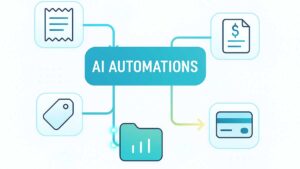You’re Leaving Money on the Table – Let’s Fix That
When you’re a freelancer, every penny counts.
You’re the CEO, the marketing department, the janitor – and the accountant. That means you can’t afford to leave money on the table, especially come tax season. So if you’re only deducting office supplies and the odd Starbucks receipt, you’re missing the bigger picture. Let’s break down not just the well-known deductions, but the overlooked and misunderstood tax breaks that could put serious cash back in your pocket.
While this guide focuses on U.S. tax laws, many of these freelancer deductions – like home office expenses, business equipment, and insurance – are recognized in other countries as well. However, tax rules vary, so it’s always smart to consult with a local tax professional to make sure you’re claiming deductions that are legal and optimized for your region.
Think Bigger Than Just Office Supplies: The Essentials & Beyond
What are the most common tax deductions for freelancers? Every freelancer should know the basics – things like office supplies, client meals, and business software. But don’t stop there. Home office expenses, travel costs, and even a portion of your rent or mortgage can all be part of the deduction game. These aren’t loopholes – they’re lifelines designed for self-employed professionals like you.
Now, which lesser-known expenses can freelancers legally deduct? Think of things like educational resources, industry-specific equipment (like a PS5 for a tech reviewer), or even your phone and internet bills.
That’s right: if it’s used to help you earn, it might be deductible.
Home Sweet Write-Off: Understanding Your Home Office Deduction
Your kitchen table doesn’t count. But a designated workspace? That’s golden. If your home office takes up 10% of your living space, you can write off 10% of your rent or mortgage, utilities, repairs, and even some insurance. That’s money in your account, not Uncle Sam’s.
How do home office deductions actually work for freelancers? Simple.
Calculate the square footage of your office versus your home, then apply that percentage across qualifying expenses. For example, a freelance writer with a 150 sq ft office in a 1,500 sq ft apartment can deduct 10% of rent, electric, and more. Just keep receipts and document everything.
Your Digital Lifeline: Phones, Internet & Equipment Deductions
Can freelancers write off a new phone or internet bill for business use? Absolutely. Estimate your business use percentage – say, 60% of your phone and 70% of your internet – and you can deduct that portion. Got a new smartphone under $2,500? The IRS lets you deduct it in full under the de minimis rule.
And yes, how much of your cell phone bill can you deduct for business? If your $100 monthly phone plan is used 60% for freelance work, that’s $60/month or $720/year you’re not paying taxes on. Not bad for something you’re already paying for.
Health Insurance, Self-Employment Tax, and Adjusted Gross Income (AGI)
How much of my health insurance premium can I deduct as a freelancer? If you’re not covered by a spouse’s plan, you can deduct 100% of your premiums for yourself, your spouse, and dependents – as long as your freelance income supports it. It reduces your taxable income, not just itemized deductions.
How does the self-employment tax deduction affect my AGI? Freelancers pay a 15.3% self-employment tax, but you can deduct half of it when calculating your AGI. That could drop you into a lower tax bracket and boost your refund – or at least reduce what you owe.
Industry-Specific Deductions: Designers, Consultants & Creatives
What tax deductions can freelance designers or creatives claim? From Adobe Creative Cloud to that new camera lens or iPad Pro – if you use it for client work, it’s deductible. Graphic designers, photographers, copywriters – each profession comes with its own toolkit, and the IRS recognizes that. Just document the business use and keep purchase records.
What are the differences in tax write-offs for freelance consultants vs. other freelancers? Consultants often spend more on travel, professional liability insurance, and client entertainment. These can be powerful deductions, especially when paired with traditional ones like education and communication expenses.
Client Lunches, Travel & Entertainment: Still Deductible?
Yes, but with caveats. Client entertainment is still deductible at 50% if it’s directly related to business and not considered lavish. That $60 lunch with a new prospect? You’re writing off $30 – and setting up a potential payday.
What Happens When Clients Don’t Pay?
Are unpaid invoices deductible for freelancers under bad debt rules? Yes – but only if you’ve tried to collect and use the accrual method of accounting. If you invoiced and never got paid, and have the documentation to prove it, that unpaid income can be written off. It won’t fix the missed payment, but it softens the blow.
Don’t Just Deduct, Justify: Documentation is Your Secret Weapon
What records should freelancers keep to support tax deductions? Receipts, mileage logs, time tracking, and notes on client meetings are essential. Use tools like SparkReceipt to scan, categorize, and store every deductible penny. Come tax time, your well-documented expenses will speak louder than any audit.
Final Thought: Claim What’s Yours
If you’re self-employed, you are your business. That means every tool, every meeting, every investment in your craft matters – and potentially saves you money. Use this knowledge. Use the deductions. And keep better records than the IRS ever dreamed of.




